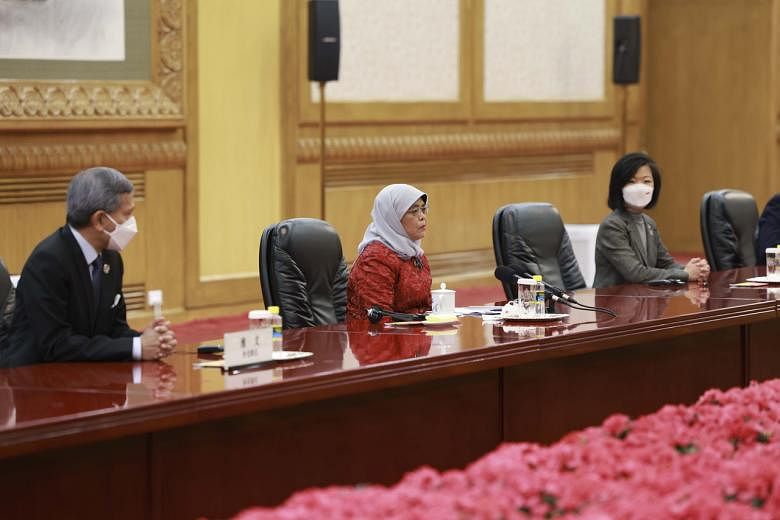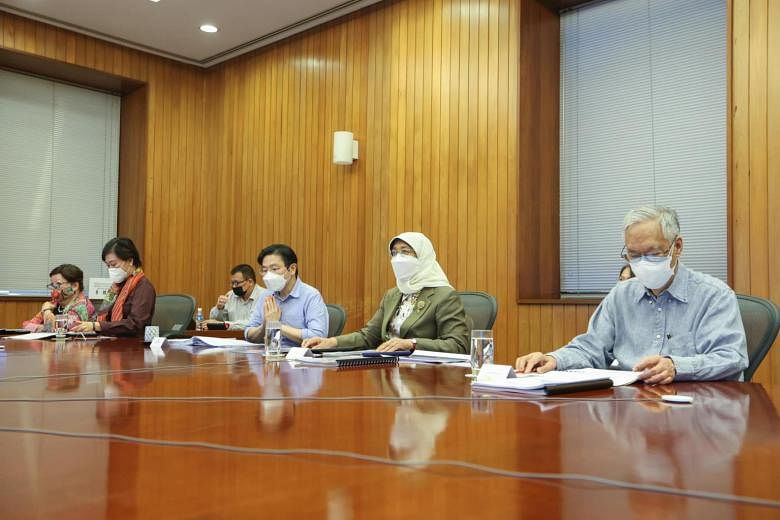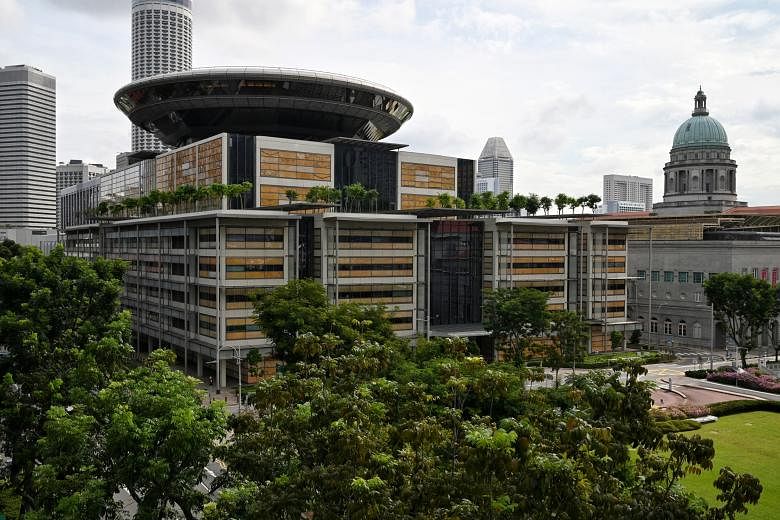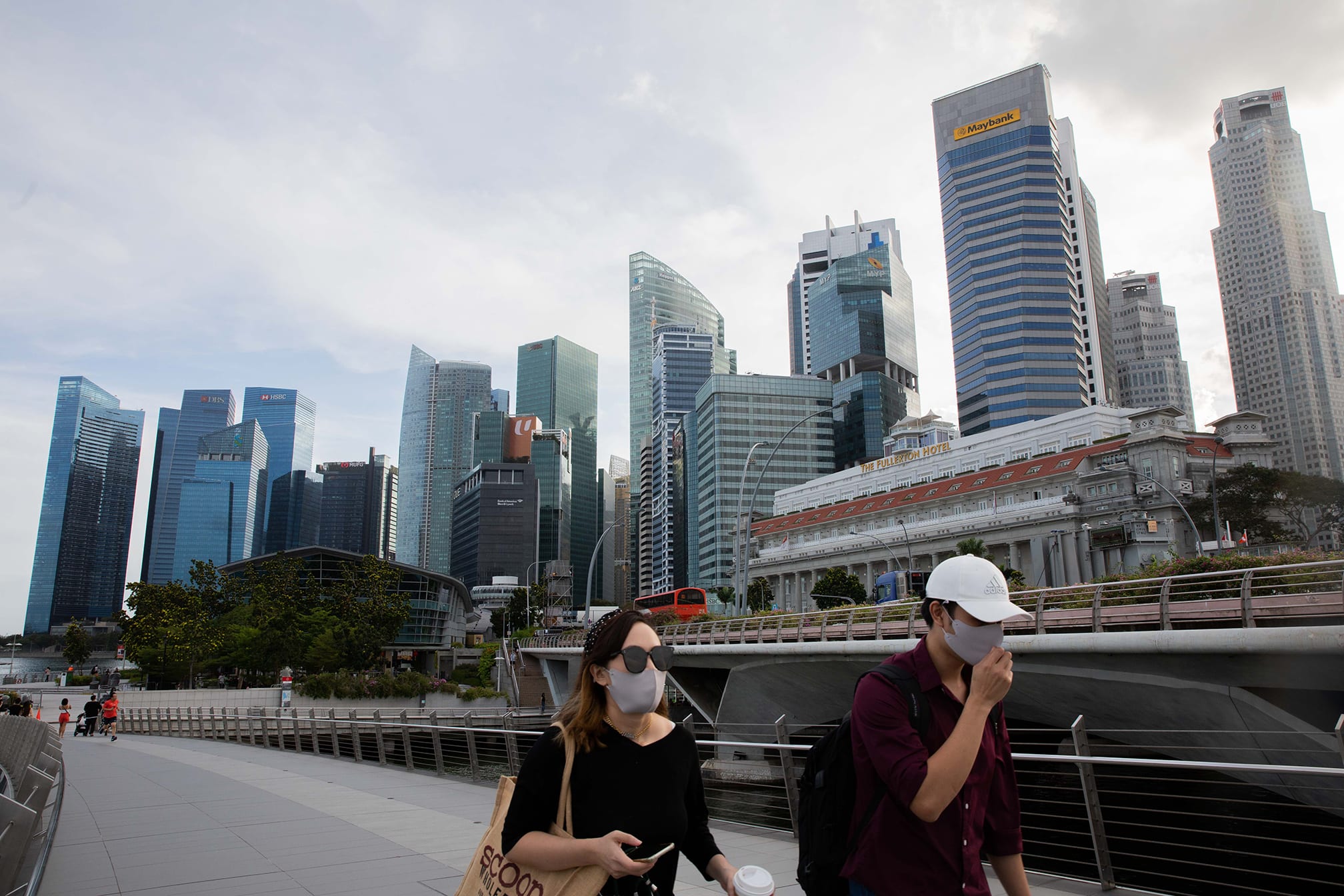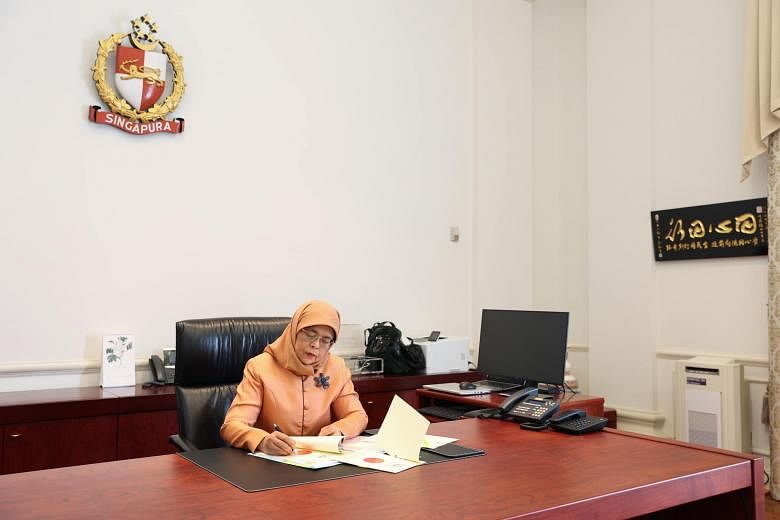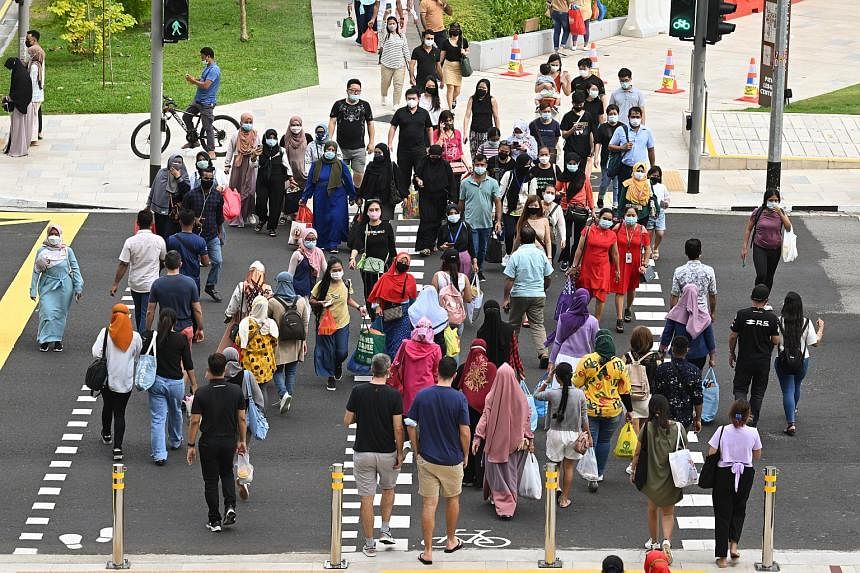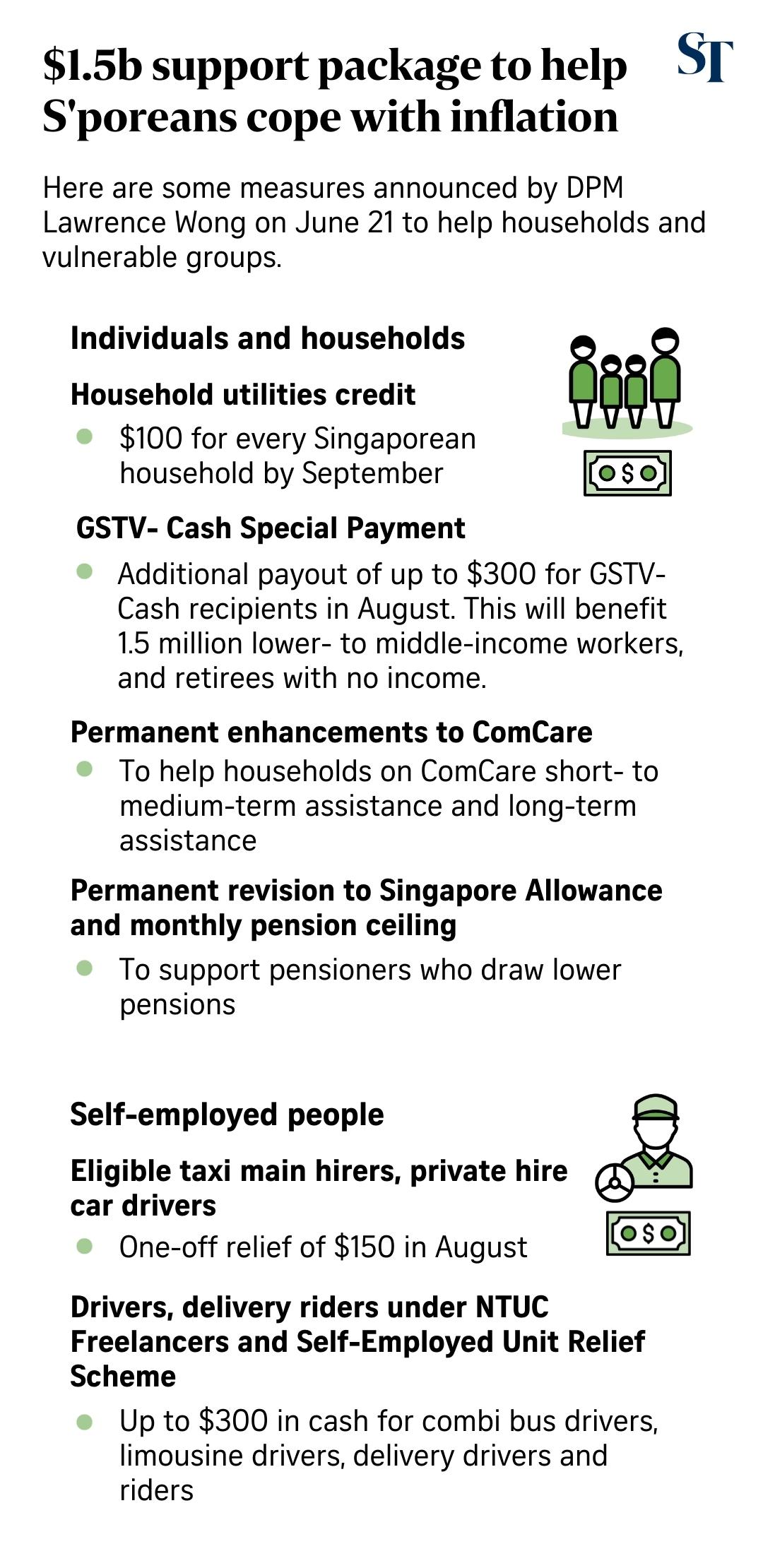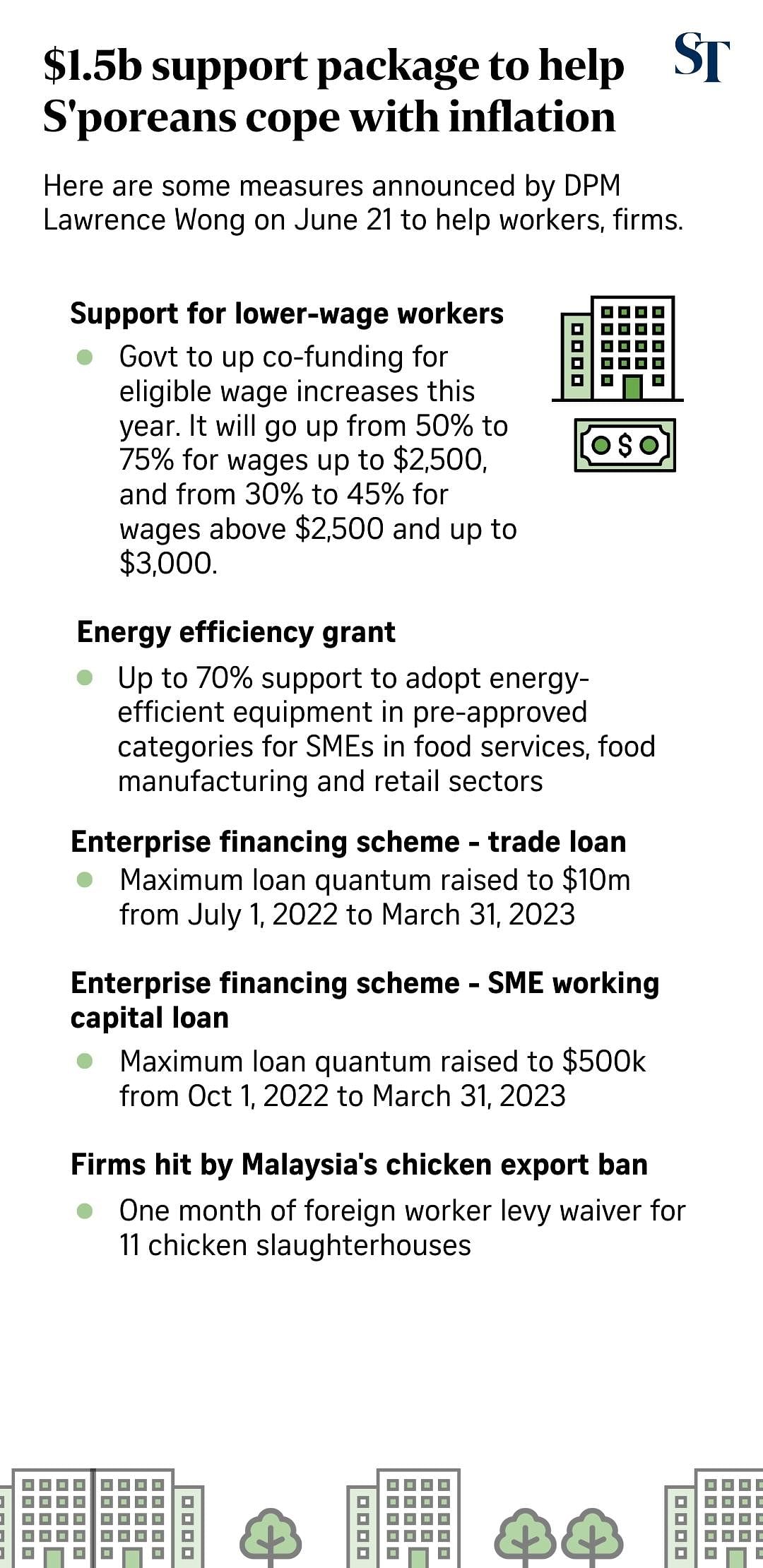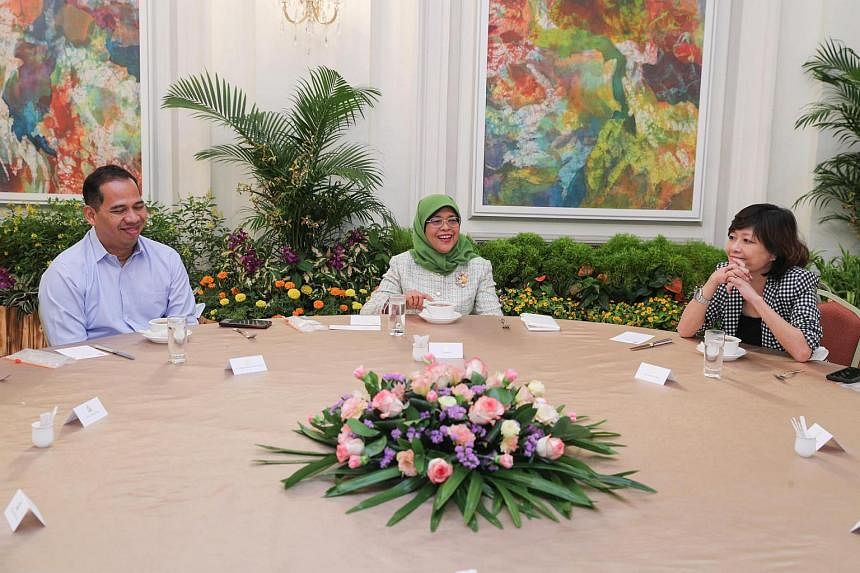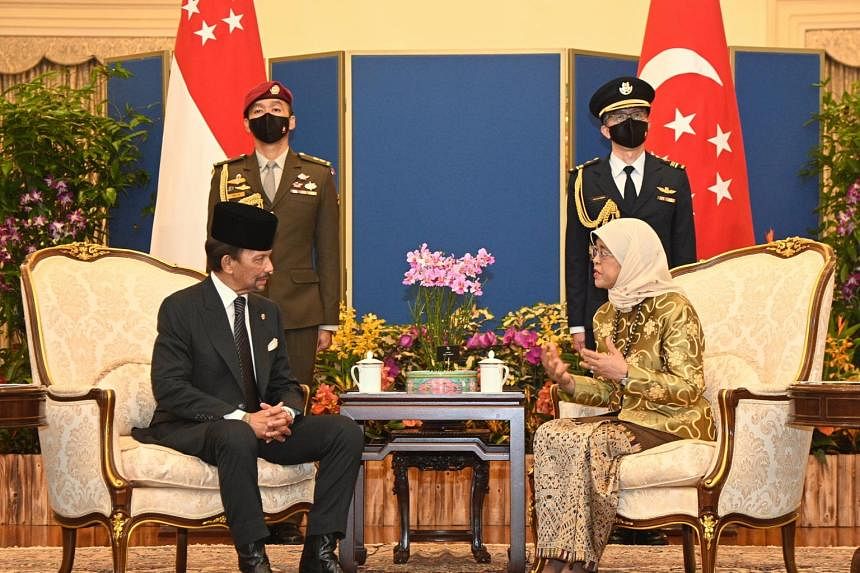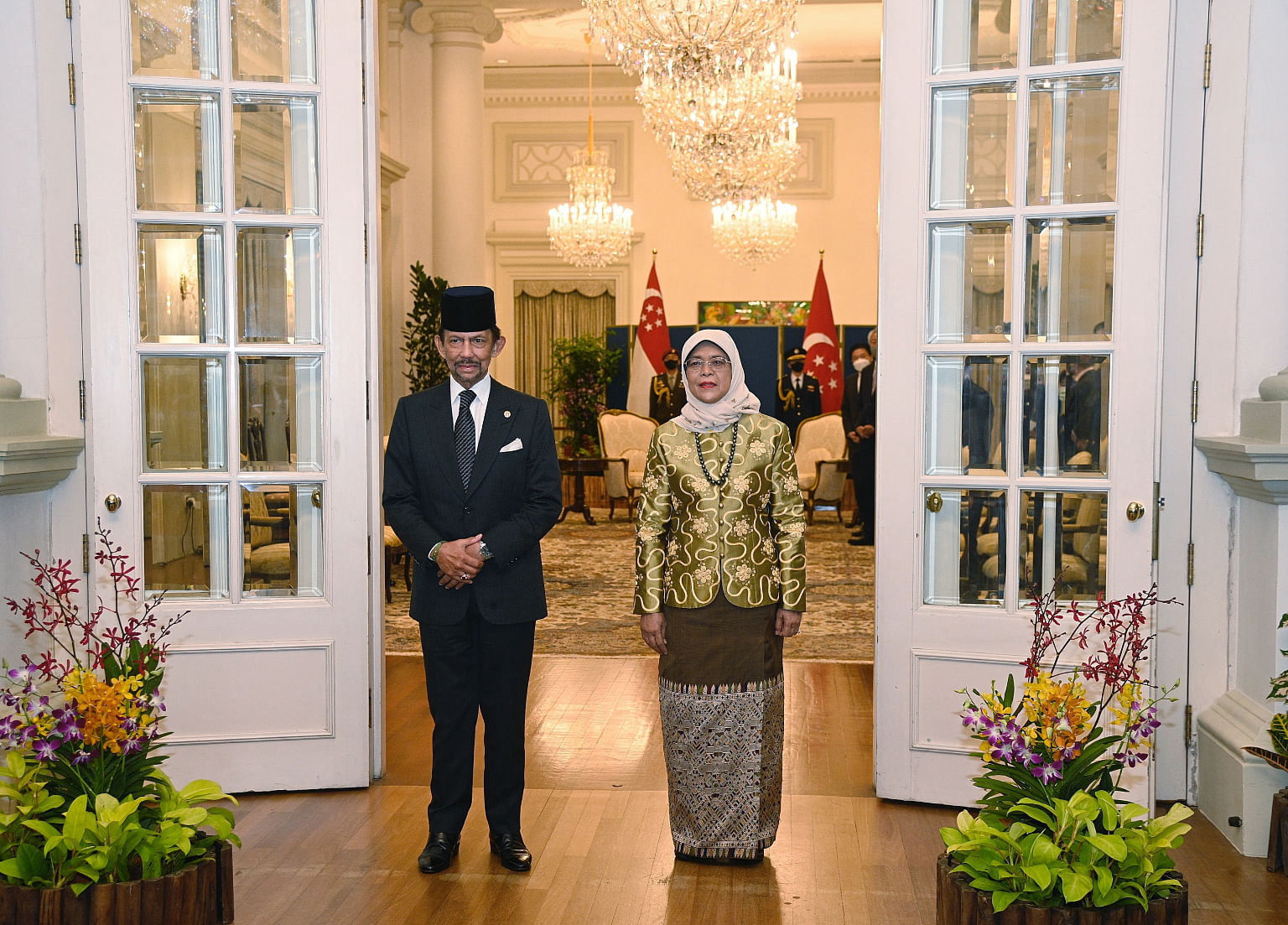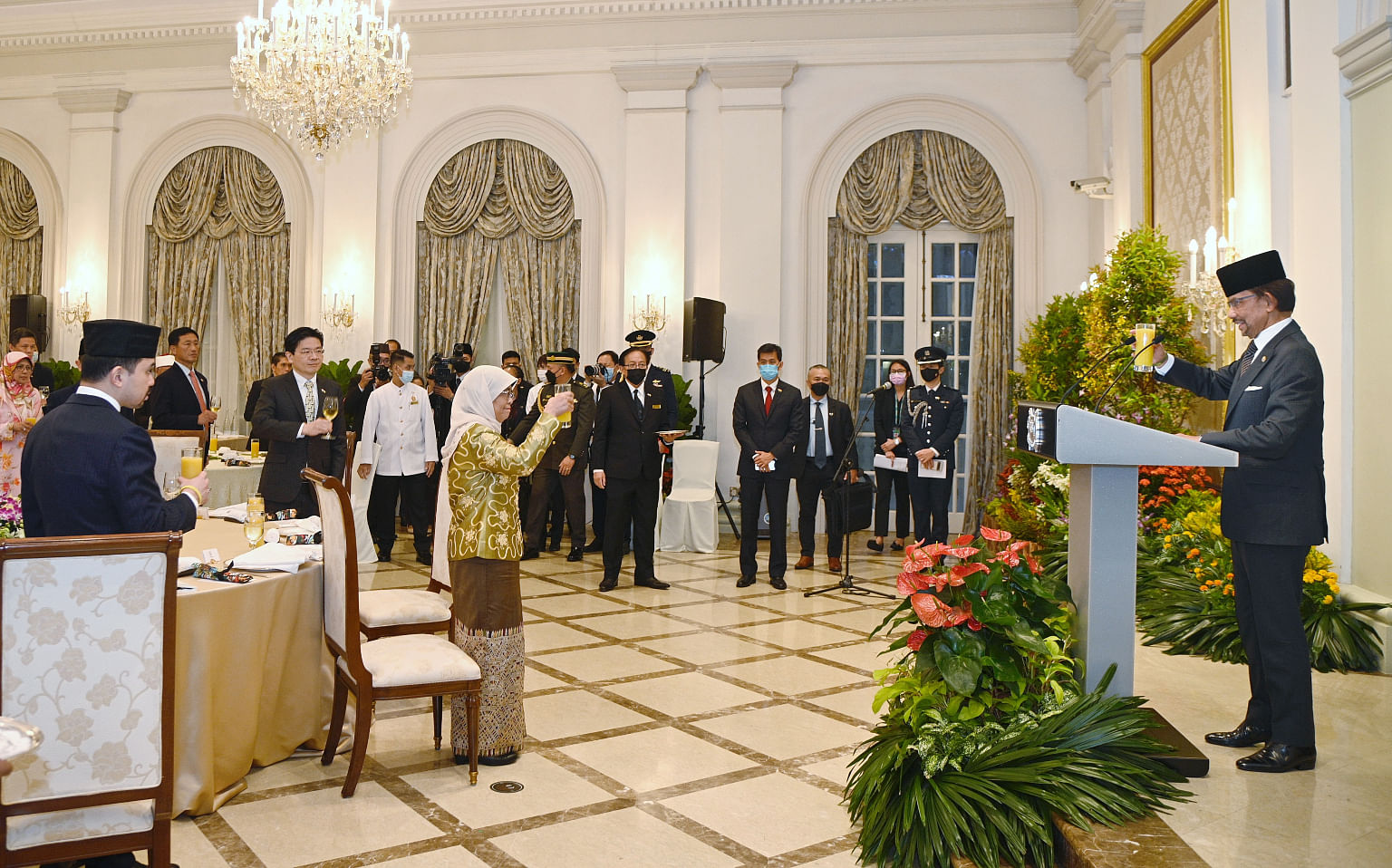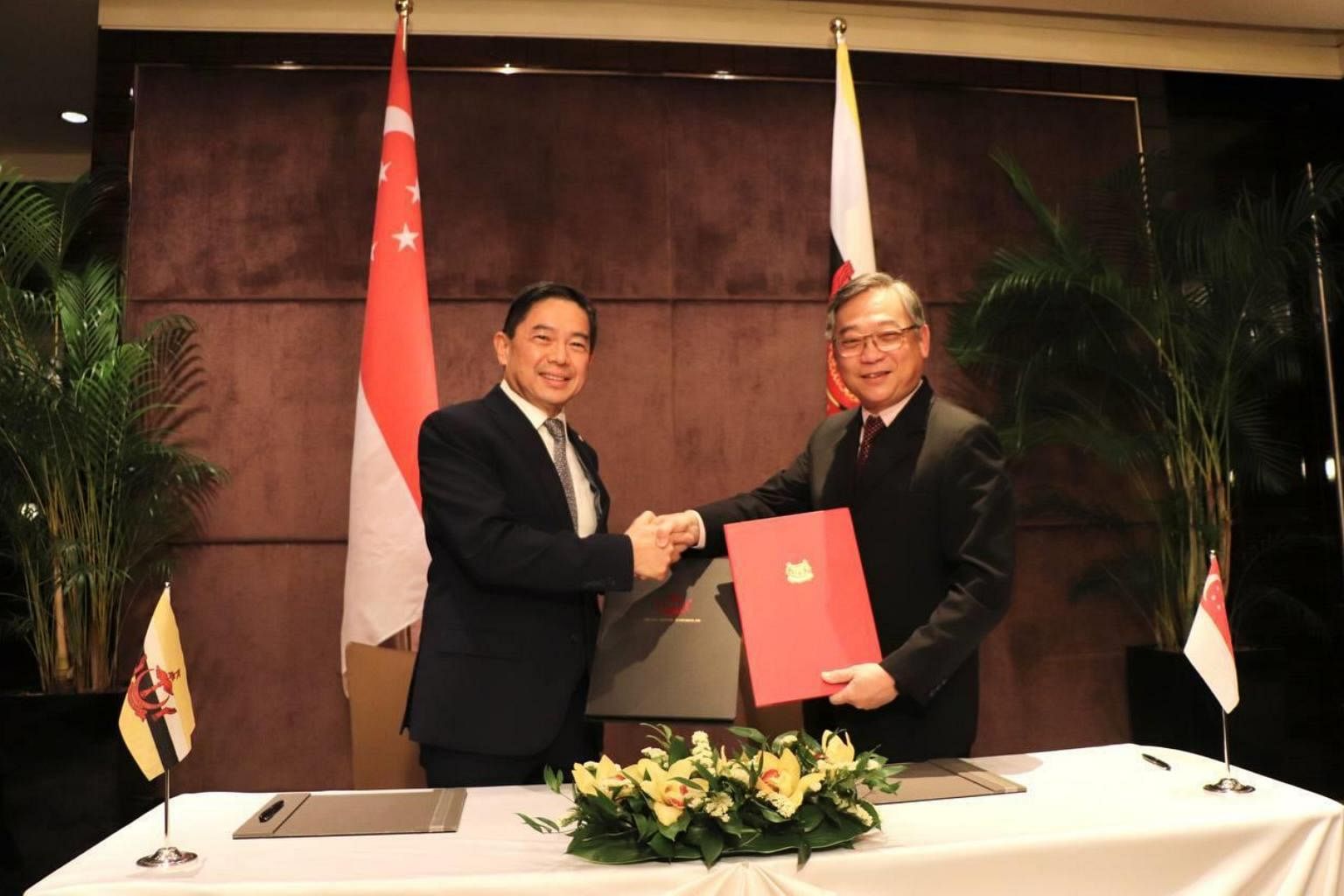Halimah is so clever; can give in-principle approval so fast.
Wonder what probing questions she asked?
"Eh, which is the income statement and which is the balance sheet?"
Budget 2021: Expected deficit of S$11 billion; Government to draw on reserves for 2nd straight year

The Treasury, where the Public Service Division is headquartered. (Photo: Wikipedia)
By Cheryl Lin@CherylLinCNA
16 Feb 2021
SINGAPORE: To sustain economic relief amid an unprecedented pandemic, the Government will draw on its past reserves for a second consecutive year, said Deputy Prime Minister Heng Swee Keat on Tuesday (Feb 16).
This will fund the S$11 billion COVID-19 Resilience Package in Budget 2021, which is needed to tackle the immediate challenges that the pandemic presents, said Mr Heng in Parliament, adding that the measures are “extraordinary and temporary”.
The sum represents about 2.2 per cent of the country’s gross domestic product, and its resultant measures will “impart a considerable fiscal boost to the economy”, noted Mr Heng, who is also Finance Minister.
He added that President Halimah Yacob has given her in-principle support for the proposed draw of up to $11 billion on past reserves for the financial year 2021.
“We are extremely fortunate to be able to tap on our strategic assets and deploy the resources required to deal decisively with COVID-19 and the considerable uncertainties that lie ahead. We should never take our reserves for granted,” said Mr Heng.
Despite the package, the overall amount the Government expects to draw from the reserves will only rise by S$1.7 billion, totalling up to S$53.7 billion for FY2020 and FY2021. This is because the estimated S$52 billion fenced off last year for the crisis will not be fully utilised, Mr Heng said.
The Government expects to use S$42.7 billion of the S$52 billion, leading to a S$9.3 billion balance which offsets the sum for the S$11 billion COVID-19 Resilience Package.
“With the effective response of our people and businesses in adapting to the changing situation, we have been able to bring the pandemic largely under control. Hence, our requirements for some areas such as public health turned out to be lower than what was provided for,” he said.
RECOVERING FROM COVID-19 DETERMINES LONG-TERM SUCCESS
Mr Heng also cautioned that how Singapore recovers from COVID-19 in the next few years is critical, as it will determine the country’s long-term success.
That is why beyond dealing with its immediate impact, Singapore is also making “significant investments” to capture future growth in line with structural trends, he said.
“We expect that as the economy recovers, we will be able to balance our budgets, and our revenues will be able to support projected expenditure for these measures.”
But this assessment assumes that the global pandemic will come under control by next year, he said, while warning about a “wide cone of uncertainty”.
“Even if the economic and fiscal situation turns out to be worse than expected, we must still press on to invest in new areas, so as to ride on the structural changes, transform and emerge stronger as an economy, and as a people.
“Should the public health and economic situation deteriorate, and the need arise, the Government will seek the President’s consideration for the use of past reserves to support these economic investments,” he said.
He noted that Madam Halimah has been briefed on the Government’s strategy and contingency plan. Mr Heng said she expressed her “understanding towards the Government’s approach” and will consider their specific proposals, should there be a need to draw on past reserves.
He also emphasised the need for fiscal prudence and discipline, saying that the Government must “return to running balanced budgets” beyond this crisis.
Wonder what probing questions she asked?
"Eh, which is the income statement and which is the balance sheet?"
Budget 2021: Expected deficit of S$11 billion; Government to draw on reserves for 2nd straight year
The Treasury, where the Public Service Division is headquartered. (Photo: Wikipedia)
By Cheryl Lin@CherylLinCNA
16 Feb 2021
SINGAPORE: To sustain economic relief amid an unprecedented pandemic, the Government will draw on its past reserves for a second consecutive year, said Deputy Prime Minister Heng Swee Keat on Tuesday (Feb 16).
This will fund the S$11 billion COVID-19 Resilience Package in Budget 2021, which is needed to tackle the immediate challenges that the pandemic presents, said Mr Heng in Parliament, adding that the measures are “extraordinary and temporary”.
The sum represents about 2.2 per cent of the country’s gross domestic product, and its resultant measures will “impart a considerable fiscal boost to the economy”, noted Mr Heng, who is also Finance Minister.
He added that President Halimah Yacob has given her in-principle support for the proposed draw of up to $11 billion on past reserves for the financial year 2021.
“We are extremely fortunate to be able to tap on our strategic assets and deploy the resources required to deal decisively with COVID-19 and the considerable uncertainties that lie ahead. We should never take our reserves for granted,” said Mr Heng.
Despite the package, the overall amount the Government expects to draw from the reserves will only rise by S$1.7 billion, totalling up to S$53.7 billion for FY2020 and FY2021. This is because the estimated S$52 billion fenced off last year for the crisis will not be fully utilised, Mr Heng said.
The Government expects to use S$42.7 billion of the S$52 billion, leading to a S$9.3 billion balance which offsets the sum for the S$11 billion COVID-19 Resilience Package.
“With the effective response of our people and businesses in adapting to the changing situation, we have been able to bring the pandemic largely under control. Hence, our requirements for some areas such as public health turned out to be lower than what was provided for,” he said.
RECOVERING FROM COVID-19 DETERMINES LONG-TERM SUCCESS
Mr Heng also cautioned that how Singapore recovers from COVID-19 in the next few years is critical, as it will determine the country’s long-term success.
That is why beyond dealing with its immediate impact, Singapore is also making “significant investments” to capture future growth in line with structural trends, he said.
“We expect that as the economy recovers, we will be able to balance our budgets, and our revenues will be able to support projected expenditure for these measures.”
But this assessment assumes that the global pandemic will come under control by next year, he said, while warning about a “wide cone of uncertainty”.
“Even if the economic and fiscal situation turns out to be worse than expected, we must still press on to invest in new areas, so as to ride on the structural changes, transform and emerge stronger as an economy, and as a people.
“Should the public health and economic situation deteriorate, and the need arise, the Government will seek the President’s consideration for the use of past reserves to support these economic investments,” he said.
He noted that Madam Halimah has been briefed on the Government’s strategy and contingency plan. Mr Heng said she expressed her “understanding towards the Government’s approach” and will consider their specific proposals, should there be a need to draw on past reserves.
He also emphasised the need for fiscal prudence and discipline, saying that the Government must “return to running balanced budgets” beyond this crisis.




